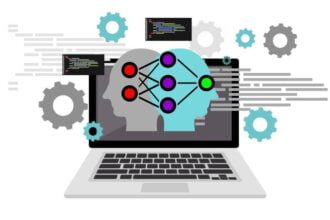Data is not just a buzzword thrown around in the marketing sphere. Data is collected and analysed effectively in order to realise what a business is doing well, what a business is doing less well, and how a business can improve. Without taking the data on board and using it to facilitate change, there would be little point in collecting it. However, there are issues when it comes to interpreting and using data to make decisions in business. It’s not as straightforward as it seems, and there are certainly pitfalls to avoid.
Anchoring and Adjustment
Anchoring and adjustment refer to the idea of dropping an anchor – or investing heavily in a piece of information – and then adjusting around that anchor. Often, the anchor works as a good starting point, but data may indicate that new avenues should be explored in order to create better success. Often, data can be collected and analysed within the realm of the anchor – neglecting the fact that the anchor itself may be the reason the business isn’t doing as well as it should be. Experts, including Value Walk reinforce this when discussing how investors react to fluctuations in the stock market indices and how behavioural finance can help inform their decisions. Investors often want to be proven right, so are mired in their initial assessments, not taking into account new information that progresses with the market. This reasoning of course extends to other applications too, including running a business or implementing a strategy.
Overconfidence in Data
Overconfidence can be a pitfall when it comes to actionable plans resulting from the collected data. Familiarity with a business decision, the abundance of information data causes, and the mere fact we have already taken action by analysing the data can all combine to create a scenario of overconfidence. And this scenario will likely result in failure. The more familiar we are with a decision, the more confident we feel about it. So if the data results in a brand new targeting campaign, which we haven’t implemented before, we would feel that we could handle it, even if it was a more difficult option. But that would be wrong to merely assume. Data gives the impression we have a lot of information available to us, yet it isn’t always meaningful enough to create the results we need. And by analysing the data, we feel we have made progress. Data should result in new ideas outside of what we already know – otherwise, we may be suffering from overconfidence.
Causation vs Correlation
Probably the most important pitfall not to succumb to in data collection and analysis is not taking into account the difference between causation and correlation. Causation states that X occurs because of Y, while correlation merely points at a relationship between X and Y. There may be a correlation between high revenue and social media engagement, but that doesn’t necessarily mean that the social media engagement is the cause of the high revenue. By ascertaining which is which and not making decisions on false causations, the correct decisions and recommendations can be made based on the data.
Data is collected for a reason – and can only be properly utilised if the analysis is done accurately. By taking into account issues that could potentially skew the results – and therefore skew the recommendations collate from the data, businesses can ensure they are moving in the right direction.









